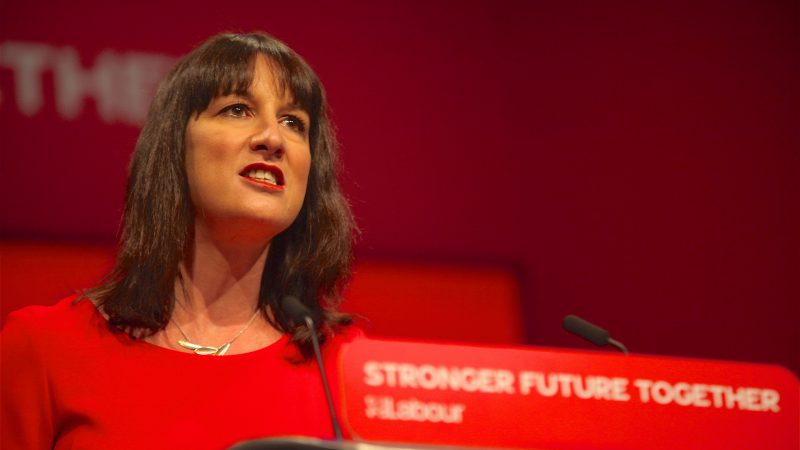
The government is imploding. Their economic policy making has gone from a baseline level of dysfunction to catastrophe in the space of just a few months. Economic and fiscal chaos has vaulted Labour to an unprecedented poll lead.
As each development unfolds, however, Labour finds itself caught in a conundrum. The worse the damage done by the Conservatives, the more likely we are to win the next election, but also the less we will be able to do in power. Furthermore, if we are not honest with the electorate now, we may find ourselves undone in an election campaign, losing the election after all.
Rachel Reeves has rightly championed fiscal rigour as a Labour value. Her fabled “fiscal rules” will govern the amount of tax and spend allowed by the Labour manifesto. Labour will be fiscally empowered to borrow to invest but must finance any current spending out of taxation. As a result, a Labour government would be able to open the spending taps for investment but would face severe pressure on current spending.
It is not possible at this stage for the Labour Party to make exact costings; public finances will change substantially before an election. However, we can make some back-of-the-envelope calculations to get a sense of the scale of the challenge.
The Institute for Fiscal Studies (IFS) estimates that around £60bn of tax rises or spending cuts will be needed for the government to fill its own budget black-hole. Jeremy Hunt has announced around half of this so far but will probably seek to make up the remainder from spending cuts, which Labour will largely want to reverse.
Add to this the basic priorities of a Labour government. A sizeable increase in NHS spending seems vital, but would cost a colossal amount of money. The influx of spending previously announced by Boris Johnson cost more than £15bn. To right years of austerity and restore the financial footing of the health service will cost more again.
Labour faces a similar dilemma with regards to the welfare bill. Undoing the £20 cut to Universal Credit, which seems the absolute bare minimum, is estimated by the Centre for Social Justice to cost £4.2bn. Again, to reverse years of austerity would cost substantially more. Factor in additional spending on education, transport and other policy areas, and we have a total bill near to £50bn.
These measures reach a total that could only be raised through a permanent and substantial tax increase. The tax changes implemented by the current government seem miniscule by comparison. The U-turn on the 45p tax rate abolition, whilst a welcome move from the government, will save the Treasury less than £5bn.
To fund long-term transformation in public services, Labour needs either to deliver very substantial economic growth or increase the basic rate of one of the ‘big three’ taxes: National Insurance contributions, income tax or VAT. The Johnson government’s NI hike, since reversed by the short-lived Liz Truss government, was projected by the IFS to raise £14bn, or near the amount needed by the NHS to eliminate the Covid backlog. Labour could perhaps manage one such change. We cannot manage enough to finance everything we want to do, however.
Another option for Labour may be to introduce new broad-based taxes. Recent economic modelling suggests that substantial revenue could be raised from a wealth tax, albeit with very large costs. However, the political implications of new taxes are uncertain, and the revenue raised is hard to forecast.
Likewise, windfall taxes can raise some revenue. The Labour Party projects its proposed windfall tax on oil and gas profits would raise £8bn. But windfall taxes are one-offs. They cannot fund a year-on-year increase in public services spending. Labour should not rule out new taxes, but we need to bear in mind that they are not an unlimited resource.
Labour faces a fiscal trap. As the Tories implode and make economically reckless decisions, it will be more and more tempting for Labour to do the same. When the government proposes popular but costly measures, such as the 1p cut to the basic rate of income tax, Labour must resist the urge to follow suit. The government has already trashed its own economic reputation; we cannot trash ours as well.
Like a runner who has pulled ahead of the pack, pacing ourselves is now more important than ever. Labour needs to think very carefully about prioritisation, because the fiscal constraints will not budge. As Keir Starmer said: “It means not being able to do things – good Labour things – as quickly as we might like.” The damage the Tories have done must be repaired, but it cannot be done all at once. The Conservatives have crashed the car, maxed out the credit card and trashed the house. It will take us a while to fix things.




More from LabourList
‘What Batley and Spen taught me about standing up to divisive politics’
‘Security in the 21st century means more than just defence’
‘Better the devil you know’: what Gorton and Denton voters say about by-election